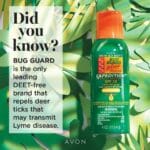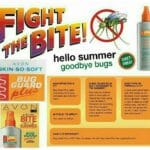Avon Skin So Soft, that familiar bath oil found in countless bathrooms, holds a persistent, almost mythical reputation as a secret weapon against pesky mosquitoes. But can this bath oil truly be a summer savior, or is it merely a bedtime luxury? Let’s delve into the facts and separate myth from reality.
Unmasking the Truth: Is Avon Skin So Soft an Effective Bug Repellent?
Avon Skin So Soft bath oil is NOT a proven bug repellent, despite its cult following and anecdotal claims. While many swear by its effectiveness, the science tells a different tale.
Imagine mosquitoes as tiny vampires, irresistibly drawn to the enticing cocktail of carbon dioxide we exhale and the warmth of our skin. Effective bug sprays work by either masking these alluring scents or creating a protective barrier that repels these bloodsuckers. While Avon Skin So Soft Original Bath Oil might leave your skin feeling incredibly soft and smooth, it lacks the necessary ingredients to deter those pesky mosquitoes.
Scientific Evidence vs. Anecdotal Claims:
Consumer Reports testing confirms Avon Skin So Soft bath oil FAILS to effectively repel ticks and mosquitoes. This finding aligns with Avon’s own stance: the company DOES NOT market the original Skin So Soft bath oil as a bug repellent. Its intended purpose is to moisturize and soften the skin.
However, numerous anecdotal accounts persist, with individuals claiming that Avon Skin So Soft, particularly the dry oil formulation, effectively keeps mosquitoes and other biting insects at bay. These claims often lack scientific backing and might be attributed to various factors such as:
- Ingredient Speculation: Some theorize that specific ingredients in Skin So Soft, while not traditionally recognized as insect repellents, might contribute to its anecdotal effectiveness. Further research is needed to explore this possibility.
- Scent as a Deterrent: The distinctive scent of Skin So Soft, while pleasant to humans, might be unappealing to certain insects, leading to anecdotal observations of repellency.
- Placebo Effect: The power of belief can be strong. When individuals believe a product works, they may be more likely to notice and attribute its use to a reduction in insect bites, even if there’s no direct causal relationship.
Avon Skin So Soft Bug Guard: A Dedicated Solution
While the original Skin So Soft may not keep bugs at bay, its moisturizing properties and pleasant scent have earned it a devoted fan base. However, Avon DOES offer a dedicated Skin So Soft Bug Guard line with Picaridin, an effective EPA-registered insect repellent ingredient. This line includes various formulations designed to repel mosquitoes, ticks, and other biting insects.
Choosing the Right Weapon: Navigating the World of Bug Repellents
Selecting the right bug spray can feel overwhelming, but understanding a few key factors can simplify the process:
- Know Your Enemy: Different insects require different repellents. Identify the specific insects you want to avoid and choose a product designed for those pests.
- Suit Up for Success: Apply bug spray like sunscreen—generously and to all exposed skin—for maximum protection.
- Timing is Key: Bug sprays don’t last indefinitely. Reapply according to the product instructions, especially after swimming or sweating.
- Protecting Little Ones: Avoid using bug sprays on babies younger than two months old. Their delicate skin requires extra gentle protection.
- Safe Storage is Crucial: Store bug spray in a cool, dry place, securely out of reach of curious children and pets.
- Sensitive Skin? Patch Test First!: Before applying a new bug spray liberally, do a patch test on a small area of your skin to check for any allergic reactions or sensitivities.
Decoding the Ingredients: What Makes a Bug Spray Effective?
Effective bug sprays typically contain one or more of the following active ingredients:
- DEET (N, N-Diethyl-meta-toluamide): A widely used and highly effective ingredient that disrupts an insect’s ability to locate humans by smell.
- Picaridin (KBR 3023): An alternative to DEET, Picaridin is generally considered less irritating to the skin and offers broad-spectrum protection against various insects.
- IR3535 (Ethyl Butylacetylaminopropionate): Another DEET alternative, IR3535 is generally considered safe and effective but might have a shorter duration of protection compared to DEET or Picaridin.
- Oil of Lemon Eucalyptus (OLE): A plant-based repellent, OLE contains a compound called PMD (para-menthane-3,8-diol), which is a registered insect repellent.
Outsmarting the Biters: Tips for Staying Bite-Free
Beyond choosing the right bug spray, consider these additional tips to minimize your chances of getting bitten:
- Timing is Everything: Mosquitoes are most active at dawn and dusk. If possible, avoid outdoor activities during these times.
- Cover Up: Wear light-colored, loose-fitting clothing that covers exposed skin as much as possible.
- Eliminate Breeding Grounds: Mosquitoes breed in standing water. Regularly empty any containers around your home that collect water, such as flower pots, buckets, and gutters.
- Consider Fans: Mosquitoes are weak fliers. Using fans outdoors can create a breeze that makes it difficult for them to land.
Avon Skin So Soft and Ticks: Separating Fact from Fiction
The belief that Avon Skin So Soft repels ticks is as pervasive as the mosquito myth. However, just like with mosquitoes, the bath oil formulation falls short when it comes to tick protection.
Consumer Reports testing has shown that Avon Skin So Soft Original Bath Oil does not effectively repel ticks. If you’re venturing into tick-prone areas, relying solely on Skin So Soft bath oil for protection is strongly discouraged.
Seeking Effective Tick Protection: The Avon Skin So Soft Bug Guard Option
Avon does offer tick repellent options within their Skin So Soft Bug Guard line. The “Skin So Soft Bug Guard Plus Picaridin” product, for instance, has received a “middle-of-the-pack” rating from Consumer Reports, indicating reasonable effectiveness against ticks and mosquitoes.
When choosing a tick repellent, consider products containing Picaridin, IR3535, or DEET, as these ingredients have demonstrated efficacy in repelling ticks. Always follow the product label instructions carefully for safe and effective use.
Avon Skin So Soft and Midges: Exploring the Anecdotal Evidence
Midges, those tiny biting insects that often swarm near water, can be a nuisance. While Avon Skin So Soft is not specifically marketed as a midge repellent, numerous anecdotal accounts suggest that the original dry oil formulation might offer some level of protection.
These anecdotal claims, however, are not supported by robust scientific evidence. One theory is that the scent or a particular ingredient in the dry oil formulation might deter midges, but further research is needed to confirm these speculations.
If you’re seeking reliable protection against midges, opting for a dedicated insect repellent containing ingredients like DEET, Picaridin, or IR3535 is advisable. Avon’s Skin So Soft Bug Guard line includes products formulated with these active ingredients and can be a viable option for midge protection.
The Bottom Line:
While Avon Skin So Soft Original Bath Oil might be a fantastic moisturizer and hold a cherished place in many households, it’s essential to acknowledge that it’s not an effective bug repellent. Relying on Skin So Soft bath oil for protection against mosquitoes, ticks, or other biting insects could lead to unwanted bites and potential health risks.
Avon’s Skin So Soft Bug Guard line, on the other hand, offers dedicated insect repellent solutions containing scientifically proven ingredients like Picaridin and IR3535. If you’re seeking reliable protection against biting insects, exploring the Skin So Soft Bug Guard options or other reputable insect repellents containing effective active ingredients is recommended. Always prioritize scientific evidence and product label instructions when selecting and using insect repellents.
- Open Door Notes: Unequal Trade, Lasting Impact on East Asia - April 24, 2025
- Funny Controversial Topics: 101+ Ideas for Lively Debates - April 24, 2025
- 20 Fun Quiz-20 Questions: Popular Now - April 24, 2025
















2 thoughts on “Avon Skin So Soft: Debunking the Bug Repellent Myth (and What Actually Works)”
Comments are closed.